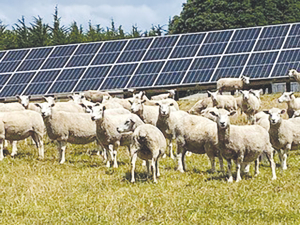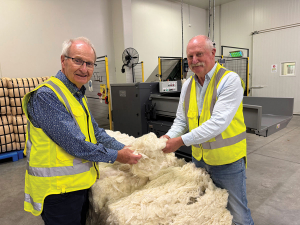New research from Massey University could indicate that combining solar panels with a pastoral sheep farming system could have both positive and negative impacts on pasture growth.
The preliminary results from the first seven months of a pilot study indicate that these effects are dependent on where the panels are located.
Pasture growth was reduced by 84% directly under the panels but increased by 38% in the larger areas between panels.
In both cases, pasture growth was compared to pasture growth in areas away from the panels.
Professor Danny Donaghy, who co-led the study, says direct shading under the panels likely has a negative influence on pasture growth, unlike previous international research in hotter and drier climates.
In contrast, in the area between the solar panels, the panels could offer ‘protective’ effects, possibly by keeping soil temperatures cooler and also slowing down the loss of soil moisture due to wind, compared to an open paddock.
“These results could be used to inform the future of mixed solar and pastoral farms in New Zealand, including ideal height from the ground and spacing between the rows of installed panels,” says Donaghy.
“This would be a win-win for solar farming coexisting with pastoral systems, or even horticultural crops,” he says.
Professor Paul Kenyon, the other co-lead on the project, says he is pleased there is New Zealand-based research to support Kiwi farmers.
“We are really just starting to understand the potential impact of solar panels on pastures in our milder and wetter New Zealand climate,” Kenyon says.
He says the next steps are to collect more data, from across New Zealand, in differing environments.
“It is important to get accurate data for New Zealand conditions. Data is needed over the entire year, or ideally over multiple years and sites, before firm conclusions can be drawn.
“This pilot project will continue until spring 2023, with additional details collected on pasture growth and quality and the prevalence of facial eczema spores on pasture. We will also conduct an economic analysis of the system with our partners at Lincoln,” Kenyon says.
The research was funded by the Agricultural and Marketing Research and Development Trust (AGMARDT). Pasture performance was measured from July 2022 to January 2023.











